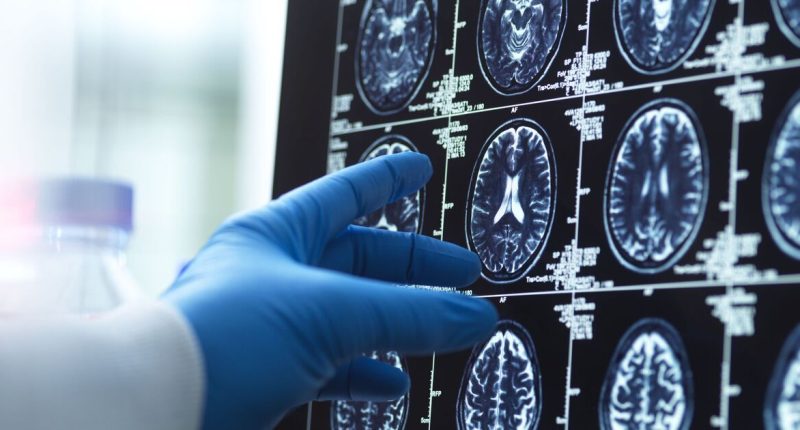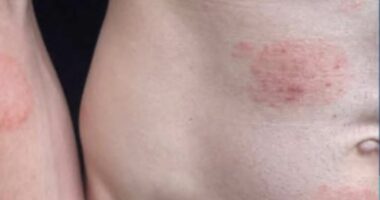Share this @internewscast.com
An expert has revealed five key warning signs of young-onset dementia, which can see symptoms develop well before the age of 65. Professor June Andrews, dementia specialist and author Dementia: The One Step Guide told MailOnline that forgetting things is “often thought of as the first sign of dementia” in older people, but the form of the disease people can develop before retirement age is “different in nature”.
Also known as early-on-set dementia, the term describes when the condition develops before the age of 65, typically between 30 and 65. Dementia is a collection of symptoms caused by various diseases that harm the brain. Symptoms include struggles with problem-solving, language problems and behavioural changes, which get worse over time. Professor Andrews explained that the “most pronounced symptom” will depend on people’s “lifestyle and responsibilities”, flagging five common signs.
Many of us experience brain fog from time to time. It’s by no means neccessarily a sign of dementia and is a common symptom of menopause in women, for example. But Prof Andrews says dementia can also cause it, adding: “This could look like continually having difficulty understanding instructions or completing assignments, much like when you’re sleep deprived, but all the time.”
Consistently finding simple tasks you once completed easily taking a long time to do can also be an indicator, she says.
Another is struggling with numbers, with the academic warning that discovering “that you’re suddenly having a problem with counting can be an early sign of dementia”.
However, she noted that mental numeracy varies between people and some professions will involve more of it than others, with those doing the jobs tending to be better at it.
“For example, a mathematician with young-onset dementia may still be better at maths than his doctor, but have lost some of his mental numeracy.”
Though “just like forgetting words” a sudden inability to do basic maths in your head could be a red flag, she added.
Meanwhile, frontotemporal dementia, a type of dementia that affects the frontal lobe can also result in people swearing more than normal.
Those who have it “increasingly lose the ability to discriminate between what is and isn’t acceptable to say”, she explained, with examples like or uttering rude or inappropriate to people without being aware of it, or swearing in front of children.
Another potential indicator is missing major steps in your daily routine. Prof Andrew said: “When you’re getting ready for work, there’s a certain order to the steps in which you do things, whether that’s getting out of bed, getting dressed, brushing your teeth or making breakfast,’ she said.
But people experiencing issues with brain processing “may start to miss steps out or get them in the wrong order”, she said, using the example of people with the condition sometimes being seen outside in their pajamas.
It can also be a factor in the work place, making working within time limits and pulling together various elements “really hard”, if you’ve got the condition, she said.
However, she also noted that every person if different, as the ways their symptoms present if they have the condition.
The NHS website says those worried about their memory, or who think they may have dementia should see their GP.
“If you’re worried about someone else’s memory problems, encourage them to make an appointment with a GP and perhaps suggest that you go with them,” it adds.
The health service also lists various charities that provide support, including the Alzheimer’s Society which has a Dementia Support Line on 0333 150 3456.

















